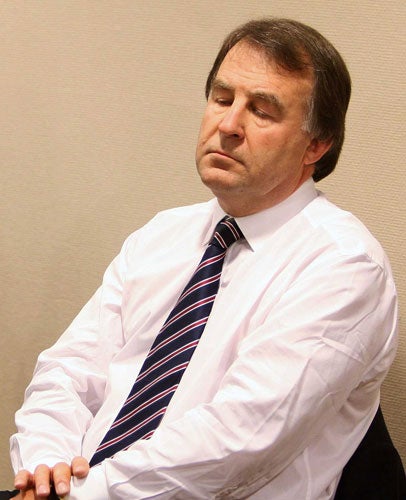RFU rejects top clubs' plan for 28-game season
Governing body warns Premiership that expanded fixture list is 'unrealistic'

Your support helps us to tell the story
From reproductive rights to climate change to Big Tech, The Independent is on the ground when the story is developing. Whether it's investigating the financials of Elon Musk's pro-Trump PAC or producing our latest documentary, 'The A Word', which shines a light on the American women fighting for reproductive rights, we know how important it is to parse out the facts from the messaging.
At such a critical moment in US history, we need reporters on the ground. Your donation allows us to keep sending journalists to speak to both sides of the story.
The Independent is trusted by Americans across the entire political spectrum. And unlike many other quality news outlets, we choose not to lock Americans out of our reporting and analysis with paywalls. We believe quality journalism should be available to everyone, paid for by those who can afford it.
Your support makes all the difference.England's top-flight professional clubs say they want a six-match expansion of the Premiership fixture list because the economic downturn has left them with "no Plan B". Yesterday, the Rugby Football Union made it abundantly clear that Plan A was a non-starter. In a forensically detailed dismantling of the clubs' proposed move to a 28-game format next season, the governing body effectively swept the idea off the negotiating table, leaving the way open for a fresh round of boardroom argy-bargy.
When Twickenham's three biggest hitters – the RFU chairman, Martyn Thomas, the chief executive, Francis Baron, and the director of elite rugby, Rob Andrew – offered their thoughts yesterday, they could not have been more dismissive of the idea put forward by the clubs' shareholders. They objected to the expansion on a wide variety of grounds: from concerns over the effects on player welfare and the potential for a fresh invasion of foreign imports, to fears that a Premiership in which some teams met three times a season rather than two would damage the tournament's credibility and undermine the union's long-term agreement with the clubs that came into effect less than a year ago.
Baron also questioned whether the Premiership fraternity had done their sums. "This could result in an increase in their cost burden," he argued. "In this financial climate, it is essential for all businesses to look long and hard at their cost base. When I spoke to the clubs before Christmas, they were talking about reducing their costs by between £1m and £1.5m each. There is no element of that in the proposals they're putting forward now, and if they're not intending to embrace this issue, they're being unrealistic.
"The union's management board members are unanimous in their view that the current proposals are against the best interests of elite rugby. There are a number of solutions worth exploring: for instance, we'd be willing to stage a fourth international at Twickenham next autumn and allocate half the revenue to the clubs, which, taken together with other income streams, would give the clubs the same money, if not more, than they could expect to make from their additional Premiership matches. What we're saying to them is: 'Don't wreck an agreement that took so much time and effort to reach.' The worst thing anyone could do in this economic situation is throw everything up in the air."
Perhaps the most alarming aspect of the union's response – alarming from the perspective of rank-and-file supporters, at least – was the possibility of a rethink over the principle of promotion and relegation, enshrined in the current eight-year agreement. "Our current position is clear: relegation from the Premiership is in place," Thomas said. "But the economic conditions we face may be the worst in a hundred years, so it would be wrong for any of us to rule out anything. The RFU needs a sound, successful, financially solvent Premiership producing England-qualified players. Professional club rugby has struggled to pay its way from the outset, but in the good times there were always people with deep pockets. Those pockets are no longer as deep, so there can be no preconceived notions."
Not that the union is particularly sanguine about its own financial prospects. The chief executive admitted that corporate business for the forthcoming Six Nations internationals at Twickenham was 27 per cent down against budget, that none of the three home matches were yet sold out – tickets have been placed on general sale, a measure practically unheard of for games against the likes of France and Scotland – and that savings of around £7.5m would have to be made before the end of the union's next financial year, which ends in June of 2010.
"Professional sport will be badly affected by this downturn, on a global scale," said Baron, who intends to host a summit of chief executives from the world's leading rugby nations, probably in March. He added that the RFU had yet to decide whether to bid for the 2015 World Cup, saying: "To ask any business to give an £80m guarantee in 2009 for an event in 2015 is a very big ask."
Join our commenting forum
Join thought-provoking conversations, follow other Independent readers and see their replies
Comments